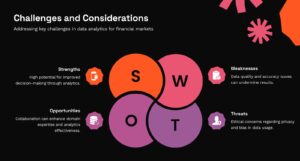
In the fast-paced modern era, we will start lagging in society without computers. Computer science is essential for development in any field and career, whether being a chemical engineer, a biotechnician or as simple as a cashier in a supermarket. Although they play a key role in everyday life, these devices are prone to risks, such as malware, viruses, and ransomware. Cybersecurity is the protection of our data and identity against these risks. In the modern world where everything is done online, not being vulnerable to data breaches and stealing personal information like passwords, security pins, and bank account numbers is difficult, therefore there is a constant need to secure all our precious data. This cybersecurity is needed in cyberspace, that is, the internet, devices connected to any such networks and money-related details available on such devices. All cyberspaces are prone to cyberattacks and cybercrimes, such as hacking, DoS attacks, economic frauds, and the introduction of malware such as trojan horses, worms, and rootkits. Cybercrimes also include harming one’s reputation through the use of artificial intelligence.
Artificial intelligence and cybercrimes are like a power couple if together, they can destroy nations and even cause cyberwars and wars in the real world. Future wars will not be fought on land and sea but in cyberspace. In 2008, there was a cyber attack on the United States and in 2014, a cyber war was held between the German parliament and the Sofacy group. Cybersecurity is a growing field that involves machine learning and artificial intelligence to predict and counter cyber attacks, thus saving servers of big organisations such as NASA.
Artificial intelligence is used for the growth of humankind, but can also cause destruction if not in good hands or when it is used to manipulate for a bad cause. Artificial intelligence is being widely used by hackers to break through security systems without the risk of getting caught. Hacking AI modules is easy; data breaches can occur after you give AI even the slightest private information. Moreover, AI is used to detect moods and needs, according to which advertisements and posters are sent to your feed, these are all feed-based marketing, judged by the AI, developed based on human psychology. From your feed, AI can tell all your moods and activities of the day, although this data is immediately deleted there have been cyber cases where this data is leaked by hackers and used against civilians. Based on birthdays, addresses and names, passwords can be guessed, helping even further in such attacks and increasing their frequencies. Once hackers get hold of your passwords, they can use artificial intelligence to bypass CAPTCHA tests and get a hold of your accounts. Once they have hacked in successfully, they use AI for deep fakes and vishing and can leak sensitive pieces of information and deceive your relatives and close ones, overall reducing your image on this world of the internet. Moreover, the victim’s computing resources are used to mine cryptocurrencies by malicious software without even a tiny hint to the user.
Cybersecurity also deals with the use of the dark web. The dark side of the internet can only be reached by the use of the Onion browser- Tor. Most hackers use it to do all their illicit actions. Now the question comes- “Why don’t we shut down the dark web if it is used by bad people?”. The history and creation of the Tor browser have the answer to this question. Tor browser was created by the United States Naval Research Laboratory (USNRL) as a way to protect themselves from any kind of data breaches. They came out with this new concept of The Onion Routing, the acronym being Tor. This concept uses multiple layers of encryption, the more you try to decrypt, the more the system will encrypt, thus keeping the address of the receiver, the address of the sender, and the information out of the reach of any possible data exposure. But there was a problem with this concept, this browser, used to have websites ending with the extension of “.onion” instead of “.com”, so whenever a normal civilian received a link from the dark web, it was very easily understood from the “.onion” that it might be a CIA agent, hence instead of hiding, it revealed the identity. To overcome this, the dark web was made free to use even for the general public. But coming back to 2024, we can now hire trained assassins to kill someone, and buy illegal weapons and we even have websites like “The Silk Road” on the dark web, which is an international marketplace for selling drugs. Although the CIA tried to shut down these networks, they were again restarted coming up with names like “The Silk Road 2.0”. The USNRL cannot shut down the Tor browser because it is also used for licit activities which are for the well-being of humankind. Recently there were reports that Chinese and North Korean people are using it to gain access to the world’s headlines, where in a dictatorship they are banned from gaining access to any kind of internet. Moreover, in the Syrian Civil War which started in 2011, civilians used the Tor browser to lower the rate of casualties and hostilities.
We must realise that Cyberspace is comprised of “good” and “evil” and there is no means that we can eliminate the “evil” without eliminating the “good”. Therefore we have to learn to live with “evil” and the only way to avoid the “evil” is by protecting ourselves using computer science and cybersecurity.

Author – Yash Oberoi
Brightlands School








